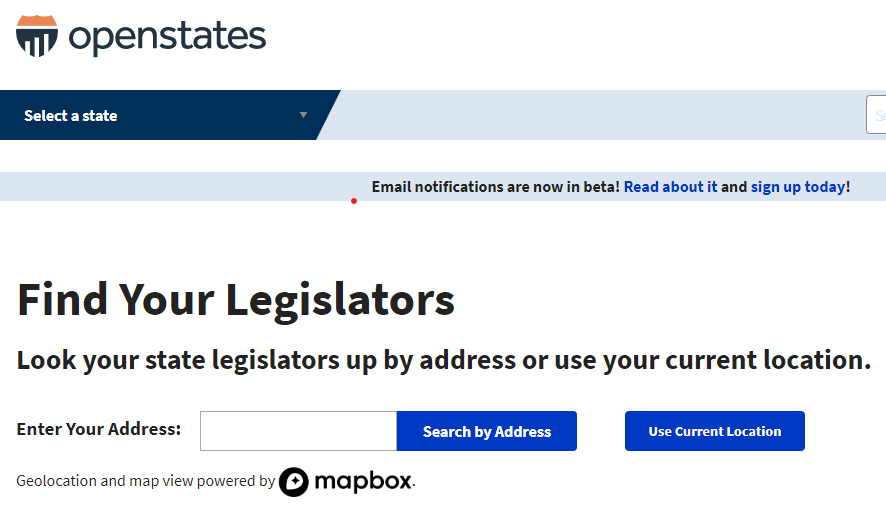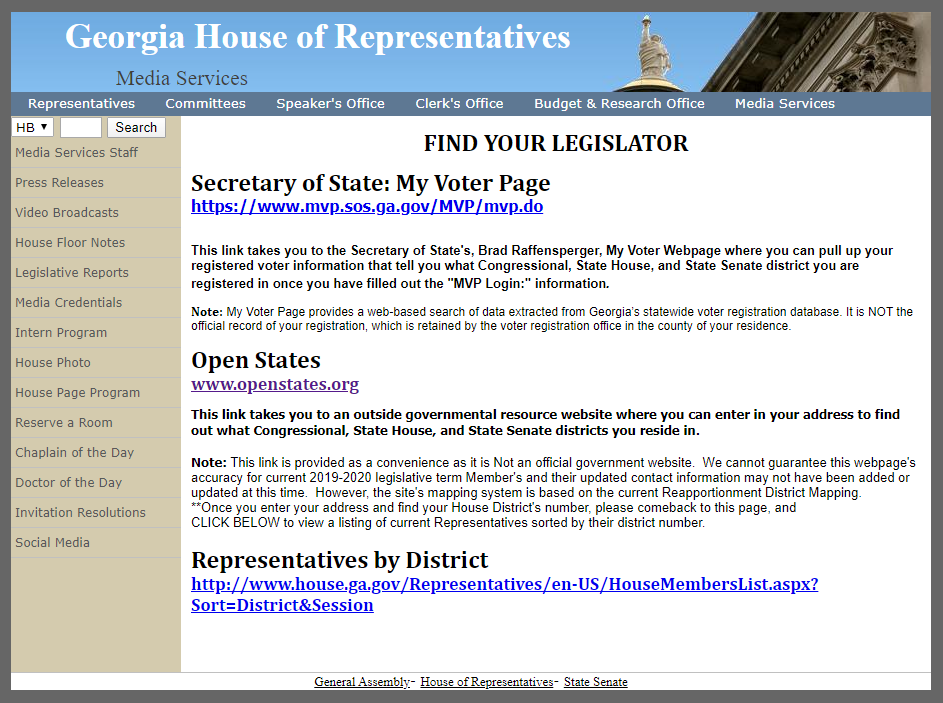January was a series of significant Wednesdays. Its hard to write anything else without mentioning…

The Importance of Writing Your Representative
Everyone complains that government doesn’t listen to them – but how many of us take the time to tell our representatives how we feel?
Representatives have a lot of constituents in districts that span urban/rural divides, income disparities, and a myriad of interests. Daily, they are faced with multiple issues from public safety, to the budget, to healthcare. Since representatives and their average staff members cannot be experts on every issue, providing them with a clear, concise, and actionable position makes their job of representing your interests easier.
When you contact your representative, they assume you represent many voices in your community (i.e. their constituents and their voters).
Taking the time to establish a relationship with your representative establishes you as a thoughtful constituent. If you really want to get involved, send a letter once a quarter about an issue that is important to you, but not urgent. That way, when a truly urgent or hot button issue for you comes up, your opinion may be considered with added value.
If once a quarter seems too daunting, don’t worry. Writing once in a blue moon about something vital to you is also effective.
The best contact methods to use:
Urgent: phone call, email, website contact form
Less urgent: physical letter (demonstrates commitment, but may not be processed for up to a month)
How to Write a Letter or E-Mail
- Present one issue at a time. Provide a clear yes/no stand on this issue.
Back up your stand with a maximum of three arguments - Introduce yourself.
- State you live in their district
- State your qualifications to speak on the issue (if you have them)
- State group memberships (if applicable)
- Provide a connection to the issue
- A personal story about how the issue affects you
OR - How this affects the community / state
- A personal story about how the issue affects you
- Provide a personal connection (if possible)
- I voted for you
- I met you at a BBQ
- I also play baseball
- Remember to sign your name and address – anonymous letters are never personal, and they might go under a “watch list” for security concerns. This is not a good thing.
- Be passionate. Show you care. Do not go overboard.
Good: “Tire dumps are a danger to our environment and cause a myriad of health problems. It breaks my heart that good people with chronic health problems are not able to contribute as they want.”
Bad: “If we don’t stop all tire dumps, people will die, and their suffering and death will be ON YOUR HEAD!!!”
Sample Letter
Dear Rep X,
I am Vicky Voter, and I live in your district.
I ask you to support programs to reduce illegal tire dumping. This is important because tire dumps have been shown to cause chronic health problems in nearby communities. The standing water attracts vermin that carry disease. The runoff waste seeps into the local farmland and water sources.
My Aunt Louise lives near an unregulated tire dump. She now has chronic asthma. The fumes inflame her symptoms. After too many sick days, she lost her job and is now on disability. She has worked all her life as a teacher. She loved helping people. Now she can no longer do the things she loves. Not only is she suffering, but her local community has lost out on a terrific teacher.
[OR Tire dumps are often located near low-income neighborhoods. Residents develop chronic diseases and cannot work, further sliding into economic vulnerability. Think of all the people who want to work, who could be making their communities better, and the opportunities lost.]
I voted for you last fall, in part, because of your platform about getting people back to work.
Thank you for your time,
Sincerely,
Vicky Voter
123 Main St, Your Town, State
vivky@fakeemailaddress
How to write a post card
Post cards are another great way to contact your representative. Follow all the same rules as the letter, but each item is only a sentence, not a paragraph.
Sample Post Card
Dear Rep X.
Please support programs to curb illegal dumping. Illegal dumps harm the local community by causing diseases that keep people out of work. I want my community to prosper and everyone to reach their full potential.
Thank you for your time,
Vicky Voter
District 12, Your Town, Zip Code
(for security – you don’t have to list your full address if you don’t want to)
How to Tweet
Yes, you can 2 your representative. Which is useful for urgent yes/no votes.
Be very clear and concise. Make your yes/no position very clear and concise. Odds are low that they will have time to link to a website containing more information. Don’t count on it.
Remember, your tweet history is an open book. If you have a lot of interesting tweets, this may not be the best option to be taken seriously.
What happens to your message?
If you are writing about a specific issue or bill, your opinion will be added to the yes/no tally the staffers are keeping. For urgent or hot-button issues, staffers may receive hundreds of phone calls and letters on a single day. Make their job simple by keeping your message short and clearly stating your “yes” or “no” position.
If you are writing about a long-term issue (for example: more funding for city parks), staff members will file your letter under “constituent concerns.” In this case, it is important to have a single message or single action you wish your representative to take and note something personal to have the issue gain attention. Remember, your representative wants to get re-elected. If they have an action to take that appeals to the general public, it helps them take a stand that they believe will resonate with voters.
Finding your representatives:
Check your Georgia voter registration
Remember, your voice matters. You must use it.
Further reading:
ACLU Guide
Library Guide
NOTE: Science for Georgia cannot guarantee outside links.







